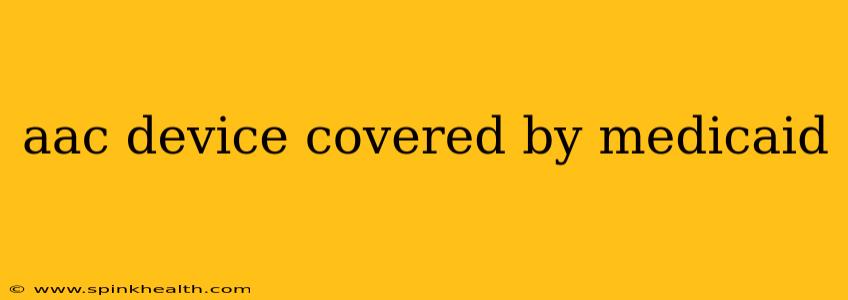Navigating the Medicaid Maze: Getting Your Assistive Listening Device Covered
Let's be honest, the world of healthcare insurance can feel like a labyrinth. Finding out whether your assistive listening device (ALD) is covered by Medicaid adds another layer of complexity. This isn't just about the cost of the device; it's about access to crucial technology that improves quality of life. This guide will unravel the mysteries surrounding Medicaid coverage for ALDs and empower you to navigate the process successfully.
My journey began years ago when my grandmother, a vibrant woman with rapidly declining hearing, found herself struggling to participate in family conversations and daily life. The cost of a hearing aid, let alone an ALD, seemed insurmountable. Her experience, coupled with my research into Medicaid coverage, solidified my commitment to helping others understand this often-confusing process.
What is an Assistive Listening Device (ALD)?
Before we dive into Medicaid coverage, let's clarify what an ALD actually is. An ALD is any device designed to help individuals with hearing loss better hear sounds in specific situations. This includes devices like:
- Hearing aids: While often considered separately, many ALDs work in conjunction with hearing aids to enhance their capabilities.
- FM systems: These transmit sound directly from a speaker (like a teacher or presenter) to a receiver worn by the individual.
- Loop systems: These use magnetic loops installed in a room to transmit sound directly to a hearing aid or cochlear implant with a T-coil.
- Personal amplifiers: These devices amplify sounds from the environment, although their effectiveness can vary significantly.
- Telephone amplifiers: These make phone conversations clearer and easier to understand.
Does Medicaid Cover ALDs? The Short Answer: Maybe.
The long answer is far more nuanced. Medicaid coverage for ALDs varies significantly depending on several factors:
- State-Specific Policies: Medicaid is a joint federal-state program, meaning each state has its own rules and regulations regarding covered services. What's covered in one state may not be in another.
- Individual Needs Assessment: Medicaid generally covers medically necessary services. A doctor's recommendation outlining the necessity of an ALD for your specific situation is crucial. This assessment will often detail the impact of hearing loss on your daily life.
- Type of ALD: Medicaid may cover certain types of ALDs but not others. Some states may prioritize coverage for devices proven to be most effective in certain situations.
- Income and Asset Limits: Eligibility for Medicaid depends on your income and assets. Even if an ALD is considered medically necessary, you must still meet your state's eligibility requirements.
How to Determine Coverage in Your State
- Contact Your State Medicaid Agency: This is the most crucial step. Their website will provide contact information, application forms, and details on covered services in your specific state.
- Consult Your Doctor: Your doctor can provide the necessary documentation to support your application, demonstrating the medical necessity of the ALD. This documentation is often essential for approval.
- Explore Available Resources: Many organizations offer assistance with navigating the Medicaid application process and understanding eligibility requirements.
What if Medicaid Doesn't Cover the Full Cost?
Even with Medicaid coverage, you may still have out-of-pocket expenses. Explore options like:
- Manufacturer Rebates and Discounts: Some ALD manufacturers offer rebates or discounts on their products.
- Financial Assistance Programs: Several organizations provide financial assistance to individuals needing ALDs.
Is There a Waiting List for Medicaid-Covered ALDs?
This depends entirely on your state's Medicaid program and its current resources. Some states may have longer waiting lists than others. Contact your state's Medicaid agency to inquire about potential waiting times.
What Documents Will I Need to Apply for Medicaid Coverage of an ALD?
You'll typically need documentation from your doctor supporting the medical necessity of the ALD, proof of income and assets, and your Medicaid application form. Exact requirements will vary by state.
Navigating the world of Medicaid and ALD coverage can be daunting, but armed with the right information and resources, you can increase your chances of obtaining the support you need. Remember, persistence and proactive engagement are key to a successful outcome. Your access to assistive listening technology directly impacts your quality of life – don't hesitate to seek the help you deserve.

